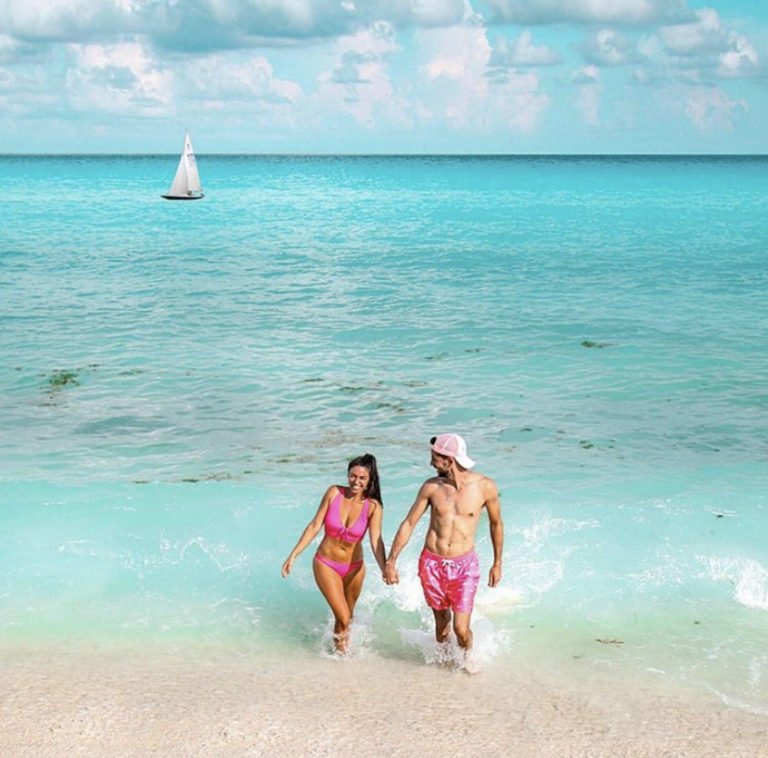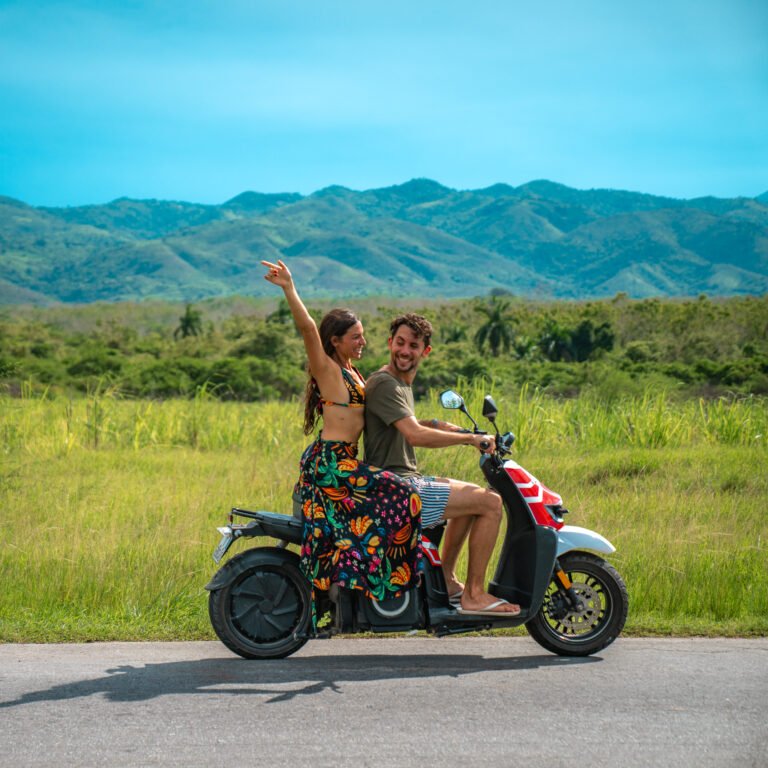Understanding Money in Cuba for Travelers: A Deep Dive into What You Need to Know
Bringing and exchanging money in Cuba for travelers can be tricky - it's unlike any other country, and that's why we're here to help. The Cuban currency system is unique, and knowing how it works will save you both time and stress during your trip.
Unlike many other destinations, Cuba is still heavily cash-based, and credit cards are often not accepted, and some country's cards are even blocked! Exchange rates can vary widely, and bringing the right type of foreign currency can make a big difference in how far your budget goes.
This guide breaks down everything you need to know about using money in Cuba, from the best currency to carry to how much cash you’ll need per day, as well as the safest ways to exchange and spend while exploring the island.
*Please note that this blog post may contain some affiliate links, which we make a small profit on, at zero cost to you. Links are only used on products & services that we've used and believe in, to give you the best buying experience. Purchasing from these links helps us to continue providing free travel guides for you- so thank you for your support!
Our Travel Planning Recommendations


🎫 Get Your Guide (tours)

📸 Best Buy (equipment)
🚗 Rental Cars (car rentals)




A Brief Intro to Understanding Money in Cuba for Travelers
It's not often we make a full guide about dealing with money in a country, but Cuba is really particular when it comes to paying for things! We're going to dive into our experience and what we learned, along with answers to some frequently asked questions about handling money in Cuba as tourists.
What We'll Be Covering in This Guide:
- Why is dealing with money in Cuba different than other countries?
- What are the different currencies in Cuba?
- What currency is best to take to Cuba?
- What is the black market in Cuba?
- How to exchange money in Cuba
- How do Americans pay for things in Cuba?
- How much money do you need per day in Cuba?
How To Travel Cheaper and Better in 15 minutes!
How much more would you travel, if it costed you less resources?
With our Free eBook, you will learn how to save money and time on your future trips. Plus, you'll see the exact system we use.
Grab your copy for free when you sign up for our newsletter 👇
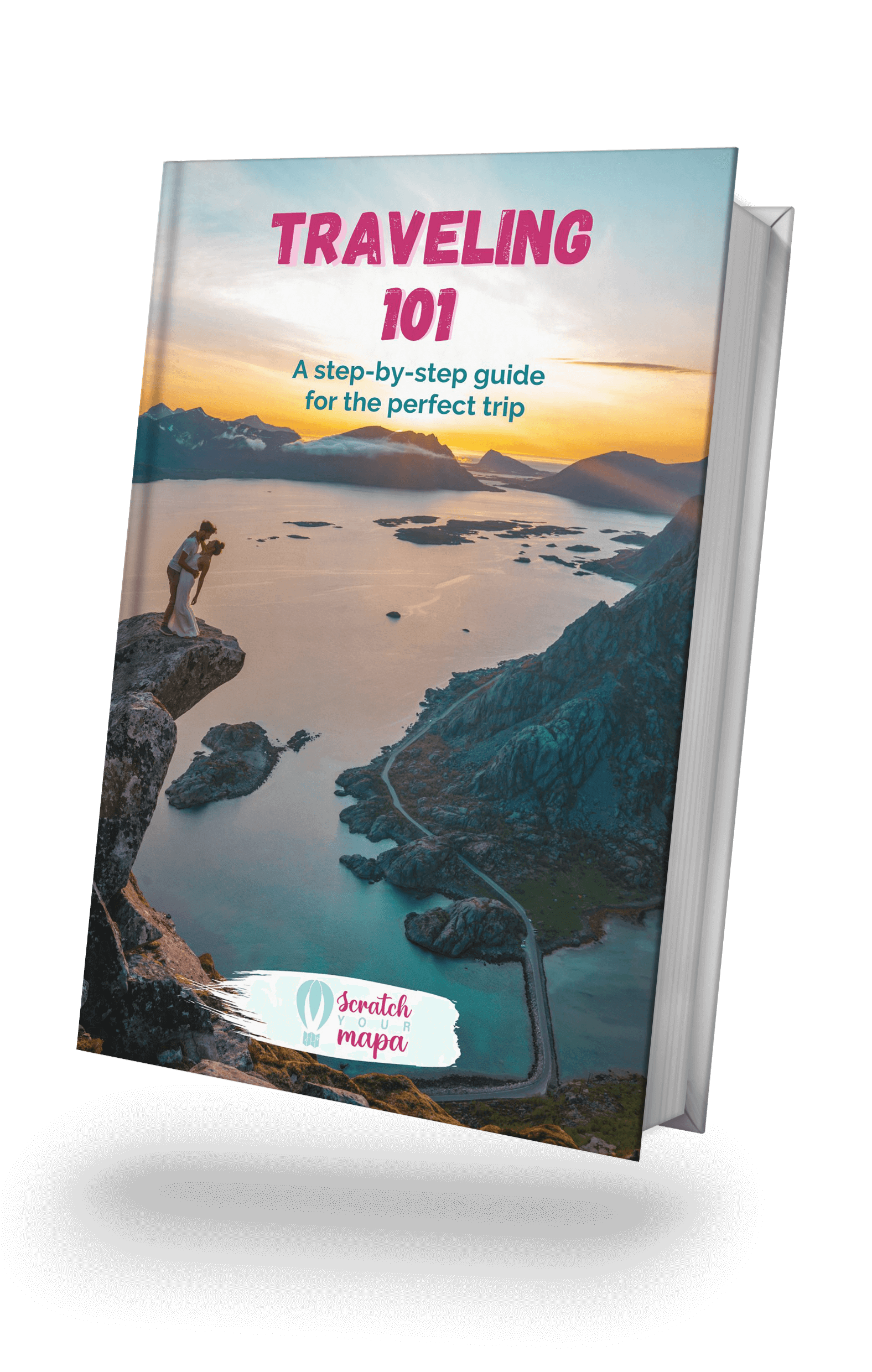
Money in Cuba for Travelers: What You Need to Know
It's time to dive into the fun stuff! Now we're going to cover everything you need to know when it comes to handling money in Cuba as a traveler.
 Understanding Currency in Cuba
Understanding Currency in Cuba
Cuba's currency system is truly bizarre - at one point there were multiple currencies, and although that's now changed, there are certain places that only accept foreign currency, and the rates for exchange vary greatly depending on where you exchange.
 The Cuban Peso (CUP) Explained
The Cuban Peso (CUP) Explained
The Cuban Peso (CUP) has been the official currency in Cuba for the longest time. Until the Soviet Union collapsed, the Cuban Peso was the only currency allowed in Cuba.
A bit after the Union fell (specifically, in 1993), Cuba introduced the Convertible Peso (known as the CUC). This was a 1:1 mirror to the US dollar. This was the beggining of a dual-currency economy that would end up in an economical tragedy.
Until 2021, the value of the Cuban Peso (CUP) was around 20:1 to 24:1 to the US dollar. This means that for every US dollar you brought into Cuba you could get up to 24 Cuban Pesos.
 What Happened to the CUC?
What Happened to the CUC?
In January of 2021, Cuba eliminated the CUC (Cuban Convertible Peso). This triggered two major economical events:
1. People that had their savings in CUP were offered to convert back to Cuban Pesos or to Bank Deposit Certificates (a complicated bank movement that we won't go deep into, but basically didn't help them get their money back at all).
2. The Cuban Peso (CUP) got hit with a big devaluation, creating a huge gap in the black market. This gap extended as far as 24:1 for the official exchange, and 300:1 in the black market exchange, as of January 2024.
This means that whether locals were saving their money in Cuban Pesos, or in Cuban Convertible Pesos, the rise of the black market forced their savings into less purchasing power.
 Can Travelers Use Foreign Currencies in Cuba?
Can Travelers Use Foreign Currencies in Cuba?
No credit cards from the US are legally allowed in Cuba. This means that even if a shop is willing to take your card, the POS will not accept it.
We tested this by using a credit card from the US, and another one from Argentina (noting that the Argentinian one did, in fact, work).
If you're traveling from the US to Cuba, you can only use cash for every transaction (whether it's by paying in US dollars, or in Cuban Pesos. Some places will accept Cuban pesos, and wildly enough, some places will exclusively accept foreign currency (particularly euros or dollars).

Our day trip to Cayo Jutias had to be paid in dollars or euros.
 What Currency Should You Bring to Cuba?
What Currency Should You Bring to Cuba?
The best currencies to bring to Cuba are euros and Canadian dollars, as they are able to be exchanged everywhere. However, USD is really helpful to have, so if you have dollars we wouldn't bother exchanging them to any other currency (other than exchanging for some local currency little by little).
 Using USD in Cuba
Using USD in Cuba
Almost every single place in Cuba will accept your US dollars in cash, because they can later exchange them in the black market for Cuban pesos. That being said, if you pay in Cuban pesos, things will certainly be a bit cheaper. Some places such as Viazul buses to get around Cuba and tour agencies will ONLY accept dollars though, so definitely don't exchange all of your money!
Our recommendation is that you talk to locals (ideally someone like your Airbnb host) and see if they can exchange your US dollars for Cuban pesos for you. Make sure you look up (or ask around) the current exchange rate in the black market before you exchange your money.
We mention this because we got scammed by one of our hosts, who "kindly" offered to exchange our money (when the exchange rate was 340 to 1), and instead he gave us 240 to 1, making up an excuse that the market was "slow" that day.
 Why Euros and Canadian Dollars are Sometimes Better
Why Euros and Canadian Dollars are Sometimes Better
Even though people will accept your US dollars, official entities like banks have stopped accepting them. This is due to the US Embargo (a.k.a. "blockage"), which applies huge penalties to those who engage in commerce with Cuba (including Cuban banks).
To avoid this, Cuban banks encourage people to trade in other currencies, such as Euros or Canadian Dollars.
Honestly it shouldn't affect you unless you can't find someone to exchange with at the black market rate. But if you bring those currencies, you can exchange anywhere with any establishment. Just make sure you look up the exchange rate in advance, so that you get the best value for your buck.
 Other Currencies Accepted on the Island
Other Currencies Accepted on the Island
Other than the Euro and the Canadian dollar, other currencies accepted in Cuba are:
- British Pound (GBP)
- Swiss Franc (CHF)
- Japanese Yen (JPY)
- Mexican Peso (MXN)
- Chinese Yuan (CNY / Renminbi)
All of these currencies are accepted for the same reason: Diversification Away from USD. Because of the embargo, Cuba wants to avoid reliance on U.S. dollars. These currencies are easier to deposit abroad without sanctions.
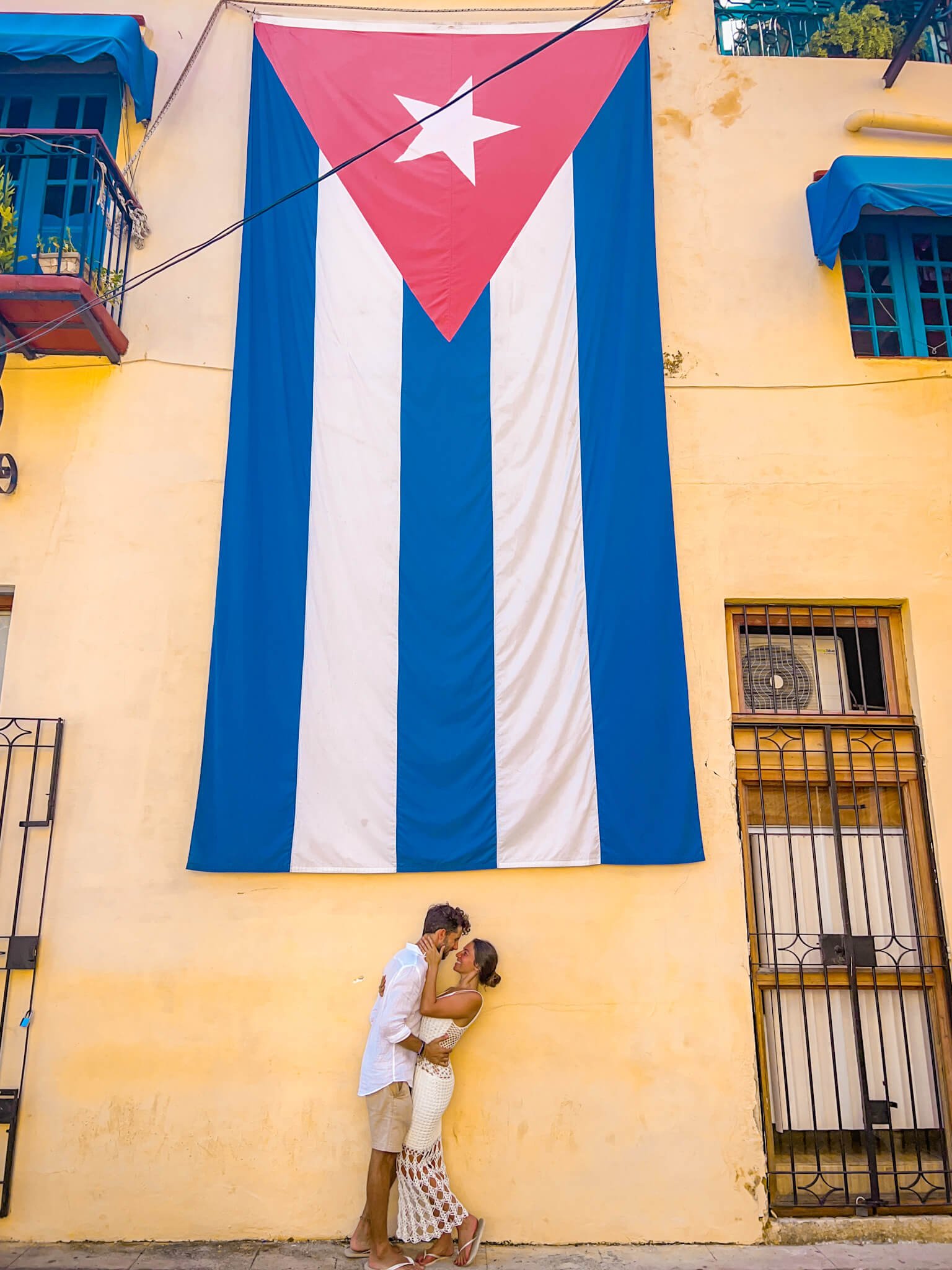
 Exchanging Money in Cuba
Exchanging Money in Cuba
Now that you know what money to bring to Cuba, let's dive into everything you need to know for exchanging it and getting the best bang for your buck.
Official Exchange Rate vs Street Exchange Rate
At the moment of writing this article (August 2025), the current exchange rate for the US dollar is:
- 24 to 1, at the official exchange
- 400 to 1, in the black market.
As always, make sure you look up (and ask around) before you exchange your money.
 Where to Exchange Money Safely
Where to Exchange Money Safely
Unfortunately, banks and hotels will only be able to assess you with the official exchange rate. If you're looking to exchange your US dollars (or any other accepted currency) in the black market, you will have to talk to locals.
While most articles will tell you that the safest way to exchange money is at the bank or an official exchange, we wouldn't listen to them. Exchanging in these places not only makes you lose a ton of money, but also gives more money to the government, and less to the people!
 Our Recommendation for Exchanging Money
Our Recommendation for Exchanging Money
Our best recommendation is that you talk to your Airbnb host about it. You can always ask around (just to have the up-to-date data), and then talk to your host to make the transaction possible. This ensures that you get the best rate available.
As an anecdote, there were times where we talked to our waiter in a random restaurant, who mentioned he could help us exchange our money, and he did in fact exchange it.
 Tips to Avoid Scams and Counterfeit Bills
Tips to Avoid Scams and Counterfeit Bills
The last thing you want when traveling is to get scammed, and it can certainly happen in Cuba.
The key here is to find people who you can associate to a specific location. Being associated to a specific location means that if anything goes wrong you can always know where to find them, which decreases the chances of them scamming you.
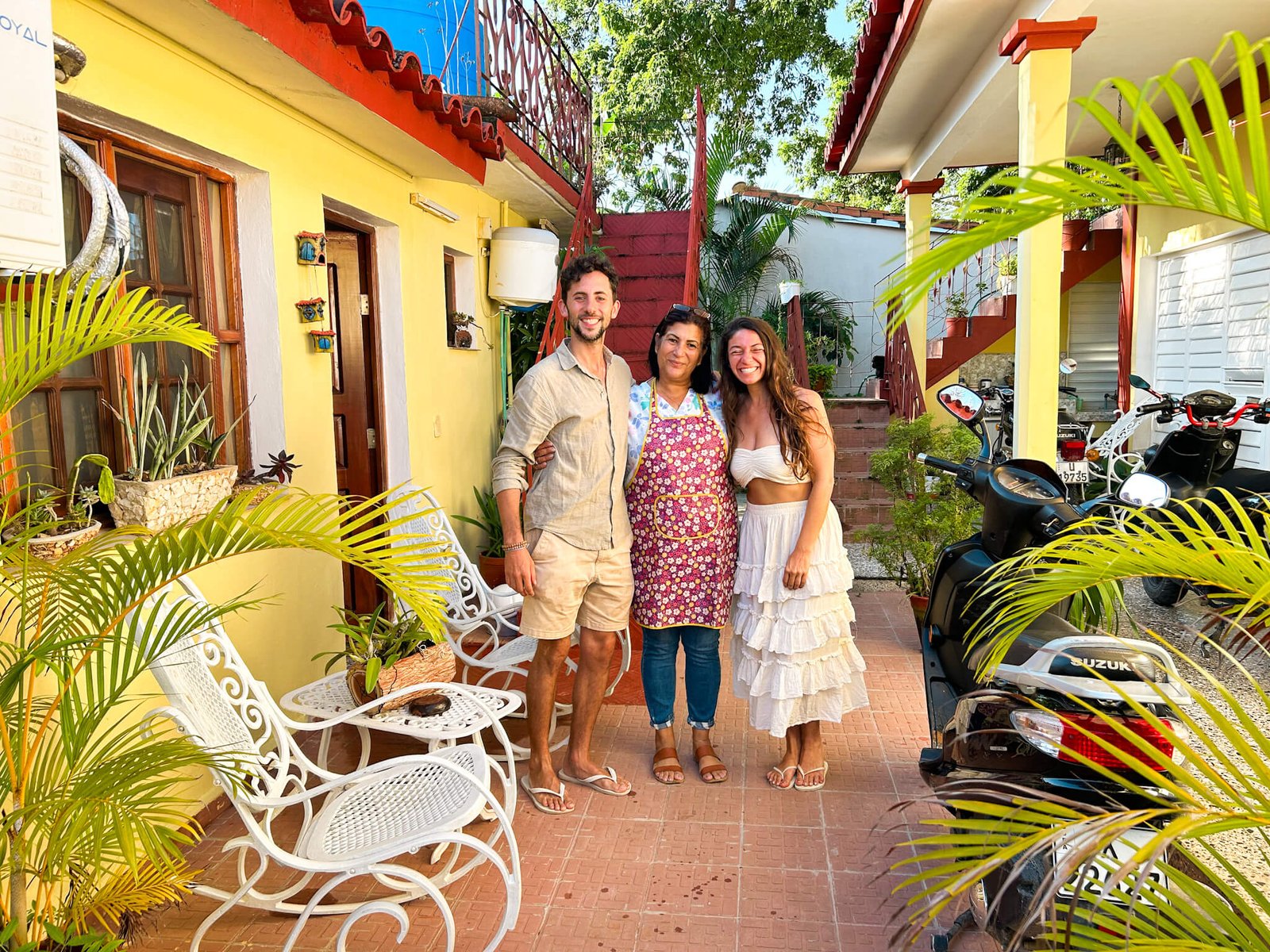
Try to find people you trust to exchange your money with.
 How to Pay in Cuba as a Traveler
How to Pay in Cuba as a Traveler
Now you know about exchanging your currency in Cuba, but here are some other things that you should know when it comes to paying for things in Cuba.
 Cash is King: Where You’ll Need it Most
Cash is King: Where You’ll Need it Most
If we have to be honest, you should aim to pay everything in cash (especially if you're from the US). There are very few reasons why you should try to pay with a credit card (that is not from the US).
So, as a rule of thumb, try to anticipate how much money you'll want/need for your full trip, and bring the whole amount in cash in advance.
Also, try to avoid relying on ATMs. Some fees are really high, and some ATMs may fail on you. So just be proactive about it and bring the cash with you (in a safety pouch, or hidden somewhere).
 Credit and Debit Card Limitations
Credit and Debit Card Limitations
As we've mentioned before, US debit cards and US credit cards will NOT work in Cuba. As far as other nationalities, Mastercard cards usually won't work in ATMs.
As far as allowed Visa debit cards from non-US countries, the daily limit will be between 5,000 to 10,000 CUP per transaction/day.
Once again, you can rely on this but we strongly recommend to show up with all the cash you need for the trip. This will help you avoid headaches.
 Prepaid MLC Cards and When to Use Them
Prepaid MLC Cards and When to Use Them
As an ongoing reminder, if you have US cards (debit or credit), or if you have US cash, MLC cards will NOT be useful to you.
These cards can be purchased at CADECA offices, banks, airports, and hotels. They can be used to buy at MLC stores (the bigger version of a supermarket you'll find in the country), to pay in certain hotels, to rent a car, or to pay at gas stations.
That being said, cash continues to be king on a daily basis.
Don't have time to read the whole article and want to save it for later? Just pin it!
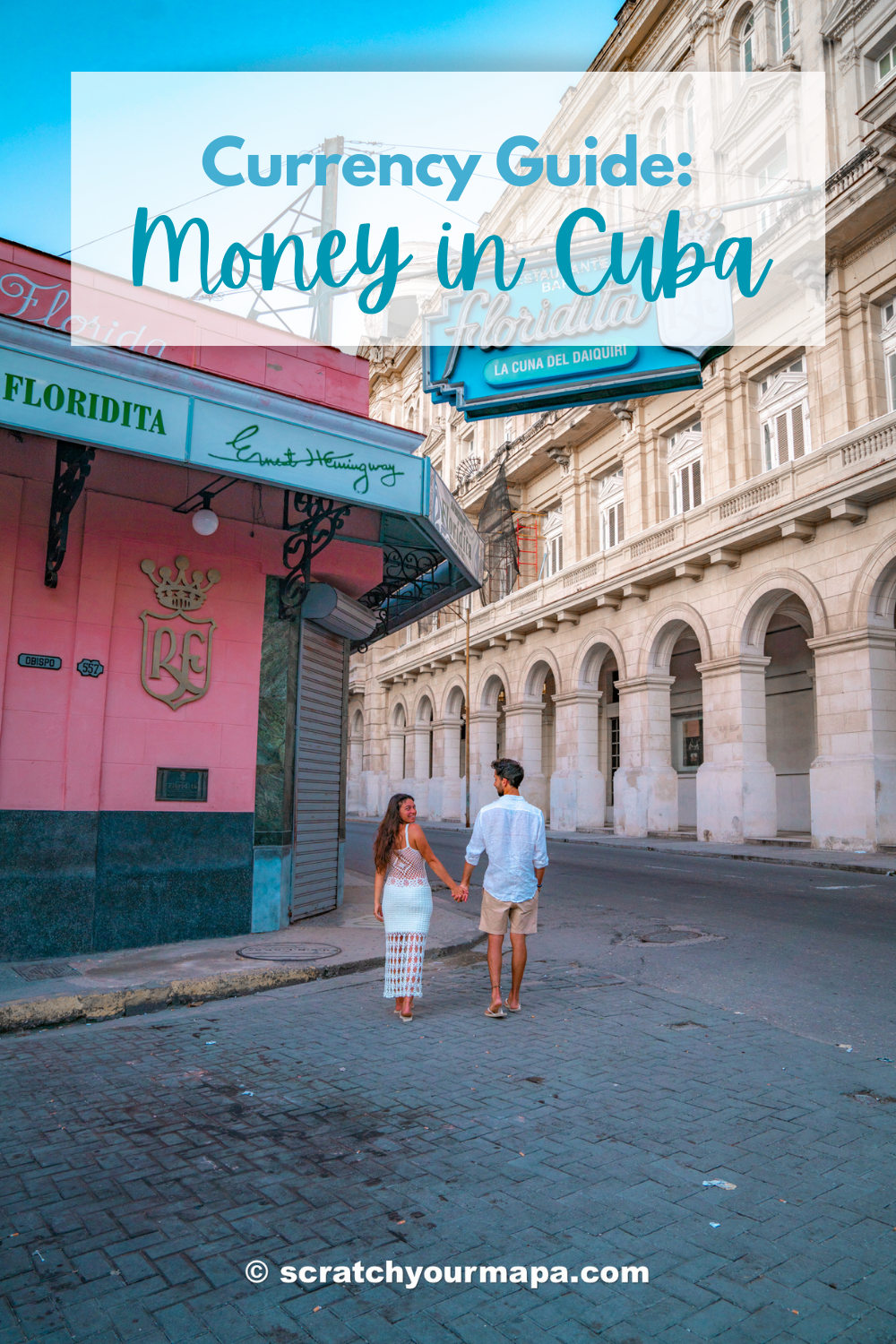
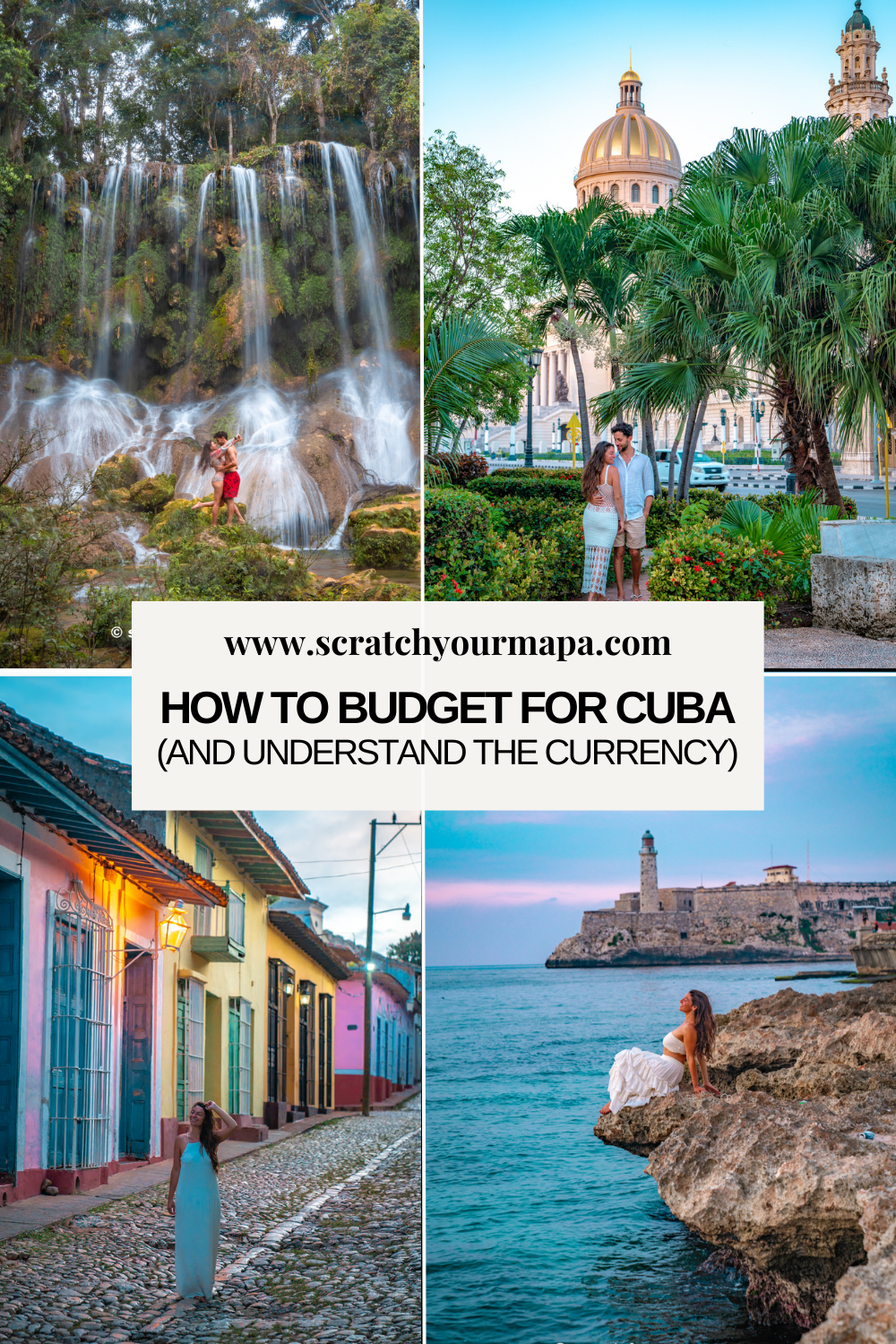
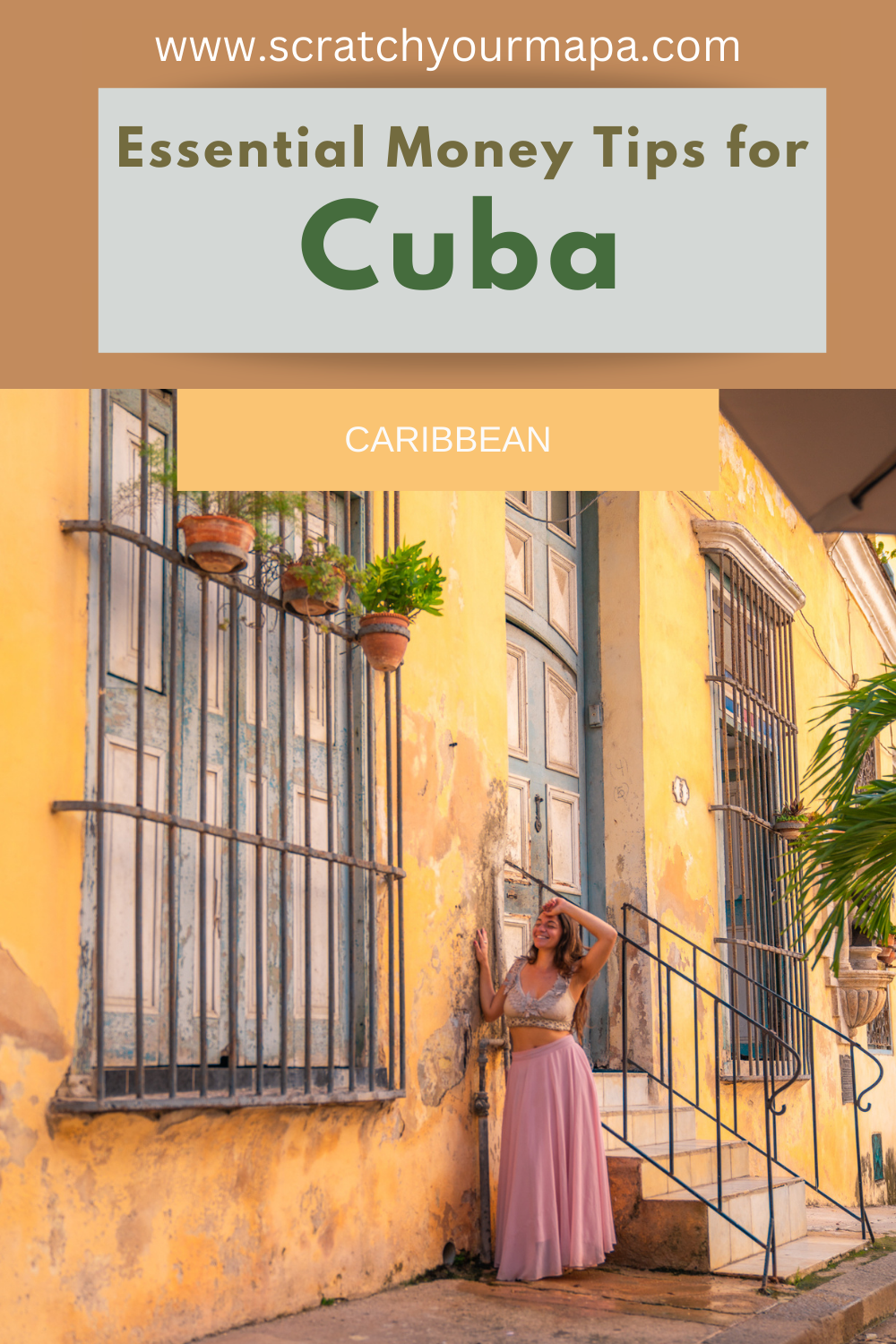
 How Much Money to Bring to Cuba Per Day
How Much Money to Bring to Cuba Per Day
Let's keep this simple, shall we? We'll make 3 categories based on the average spending of travelers. You can find accommodation for as little as $20-25/day, and closer tp $50-100/night for a nicer hotel. Meals can be as cheap as $2, and you can even find great meals (lobster for example) for as little as $7.
Tours can be a bit pricier in Cuba, as they are government-run, and hover around $100/tour. Buses between cities are typically around $20, while taxi and tuk tuk rides within cities are typically between $1-5.
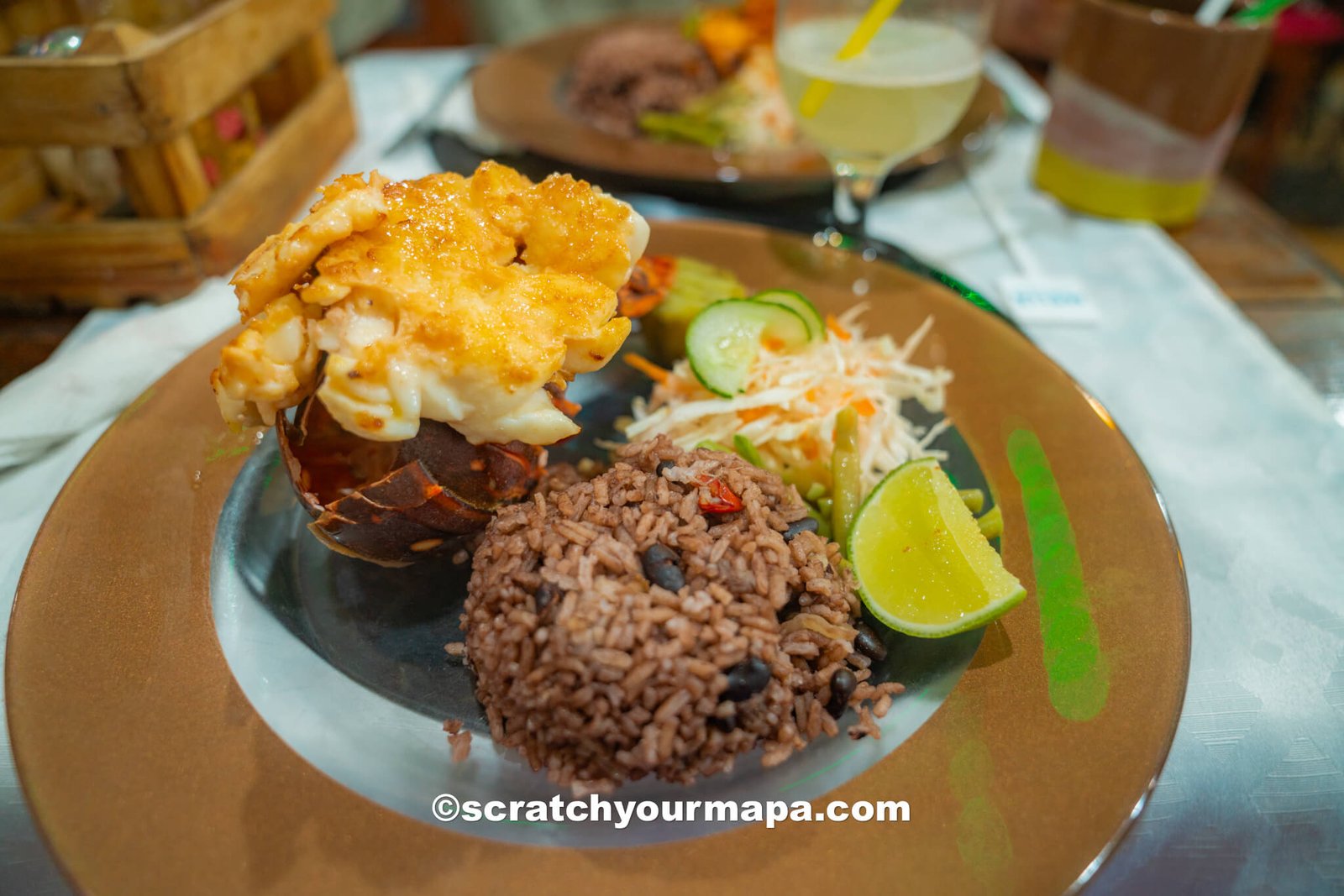
This meal and drink together was under $10!
 Average Daily Budget for Backpackers
Average Daily Budget for Backpackers
If you're a saver (lean traveler or backpacker), a single traveler can spend as little as $30–$50 a day, while a couple can expect to budget $50-70/day.

 Mid-Range Traveler Costs
Mid-Range Traveler Costs
If you're a regular traveler (regular meaning average, in the most traditional way) $50–$80/person a day will be good if accommodation is prepaid, and $90–$130 per day will be good if accommodation isn't prepaid.


 Luxury Travel Spending in Cuba
Luxury Travel Spending in Cuba
If you're a high-end traveler (meaning, you like comfort and/or tours & taxis), you can expect as a single traveler to spend $150-300/day, and a couple can look at around $400-500/day. There aren't a ton of ultra luxurious experiences in Cuba, but this is what you can expect for some of the nicer spots and activities.
 What if I Run Out of Money in Cuba?
What if I Run Out of Money in Cuba?
This may. sound crazy, but almost everyone we met ended up running out of money, or helped someone else out that did. This is because it can be really hard to budget for! We ended up shopping a lot more than we anticipated, and other people ended up spending more on guides or tipping.
We recommend bringing more than you think you'll need, but in the worst case scenario apps like Venmo, Revolut, and Wise will be your best friend. Simply speak with other travelers you become close with, and agree to send money on the app if this is the case.

Our new friends we met in Cuba that so kindly helped us out!
 Practical Money Tips for Travelers in Cuba
Practical Money Tips for Travelers in Cuba
Now you know around how much you should budget for, but here are some other tips for spending money in Cuba as travelers.
 Carrying Small Bills and Coins
Carrying Small Bills and Coins
When paying for things in Cuba, you'll need to carry smaller bills. This is because oftentimes people don't have change for big bills.
 Tipping Etiquette in Cuba
Tipping Etiquette in Cuba
What was once a generous recognition of high value service has now become a standard. This means that 10% is the average tip for restaurants.
Keep in mind that some places now add the 10% tip as "service charge" automatically. When this happens, consider the tip paid for, and you won't need to add anything on top.
 What to Do with Leftover Cuban Pesos
What to Do with Leftover Cuban Pesos
If you can anticipate that you'll end up with more Cuban pesos than you need, talk to the people you've engaged with (whether it's your tour host, accommodation host, or restaurant server) and see where and how you can exchange them back to any currency.
Realistically, you'll want to exchange them back to your local currency. But if you can't, any other currency will be easier to exchange outside of Cuba than Cuban pesos. So do your due diligence but make sure you leave the country without Cuban Pesos (unless you want to keep a few bills as a souvenir).
You can also try to exchange your leftover pesos with tourists that are coming in. If not, you'll have to spend them, since it's actually illegal to take Cuban pesos outside the country!
 FAQ About Money in Cuba
FAQ About Money in Cuba
By now you should know pretty much everything you need to know about currency exchange and handling money in Cuba as a traveler. But in case you still have any other questions, here are a few other frequently asked questions we've answered.
 Can I Use US Dollars Directly in Cuba?
Can I Use US Dollars Directly in Cuba?
The short answer is YES, but be careful. If you pay with US dollars, make sure that you get a good exchange rate. If not, try to exchange them to Cuban Pesos first, and keep your dollars for when it's something government run like buses, tours, or park entrances. This way you ensure that you don't get scammed.
 Are ATMs Available in Cuba?
Are ATMs Available in Cuba?
Yes! You can withdraw money from ATMs (as long as you don't have a US debit card), although it's not recommended. The reason for it is that you will get your money converted at the official exchange (which can force you to exchange at a much lower rate than if you exchanged your money in cash).
 Should I Bring Cash or Rely on Cards in Cuba?
Should I Bring Cash or Rely on Cards in Cuba?
100% bring cash. You can get an MLC card while in Cuba, but in a country like this remember that cash is king.
 What is the Best Way to Keep Money Safe in Cuba?
What is the Best Way to Keep Money Safe in Cuba?
Bring the cash in a safety pouch, and only carry around the cash you plan on using for that day. Whatever is left, put it in your luggage, and close it with a lock (or a portable safe, which we always carry). Relying on cards only can limit you in your purchases, but that doesn't mean you shouldn't protect your cash.
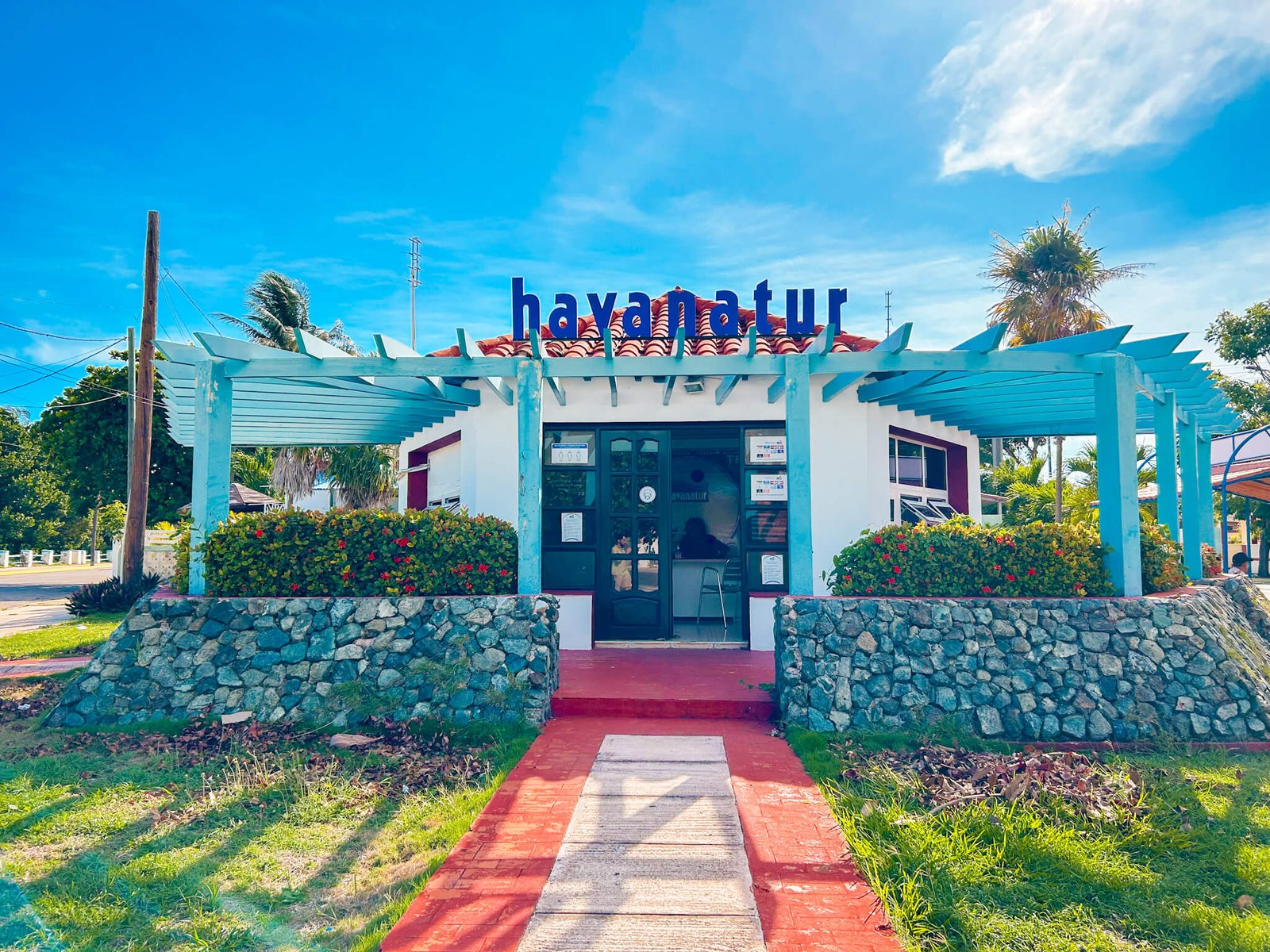
Government-run tour agencies like this one in Varadero only accept foreign currency!
Final Thoughts & Tips About Money in Cuba for Travelers
So now you know all of our essential travel tips for dealing with money in Cuba. For travelers, being in Cuba can be vastly different than it is for locals, especially in a financial sense. You should have a good idea of what to expect when traveling there, but if you missed anything, here is a bit of a recap.
 What's Next?
What's Next?
Now that you have read all of all about how to deal with the currency in Cuba, you'll probably want to learn more about visiting! Here are some of our other travel guides we recommend that will help you getting acquainted with this unique island country:












💵 Understanding Money in Cuba for Travelers: A Deep Dive Into What You Need to Know
📖 The Ultimate Cuba Travel Guide
...and more coming each week!
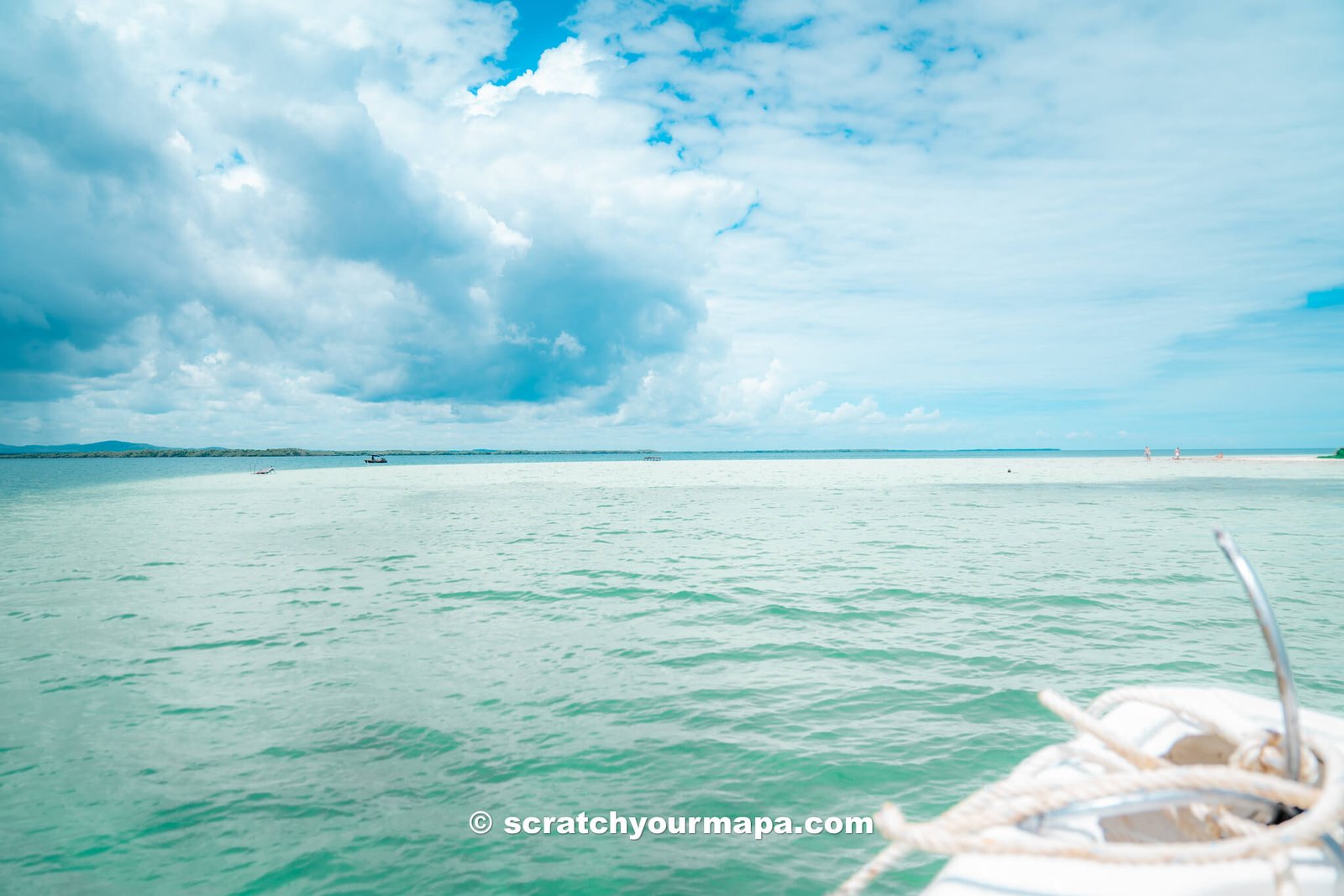
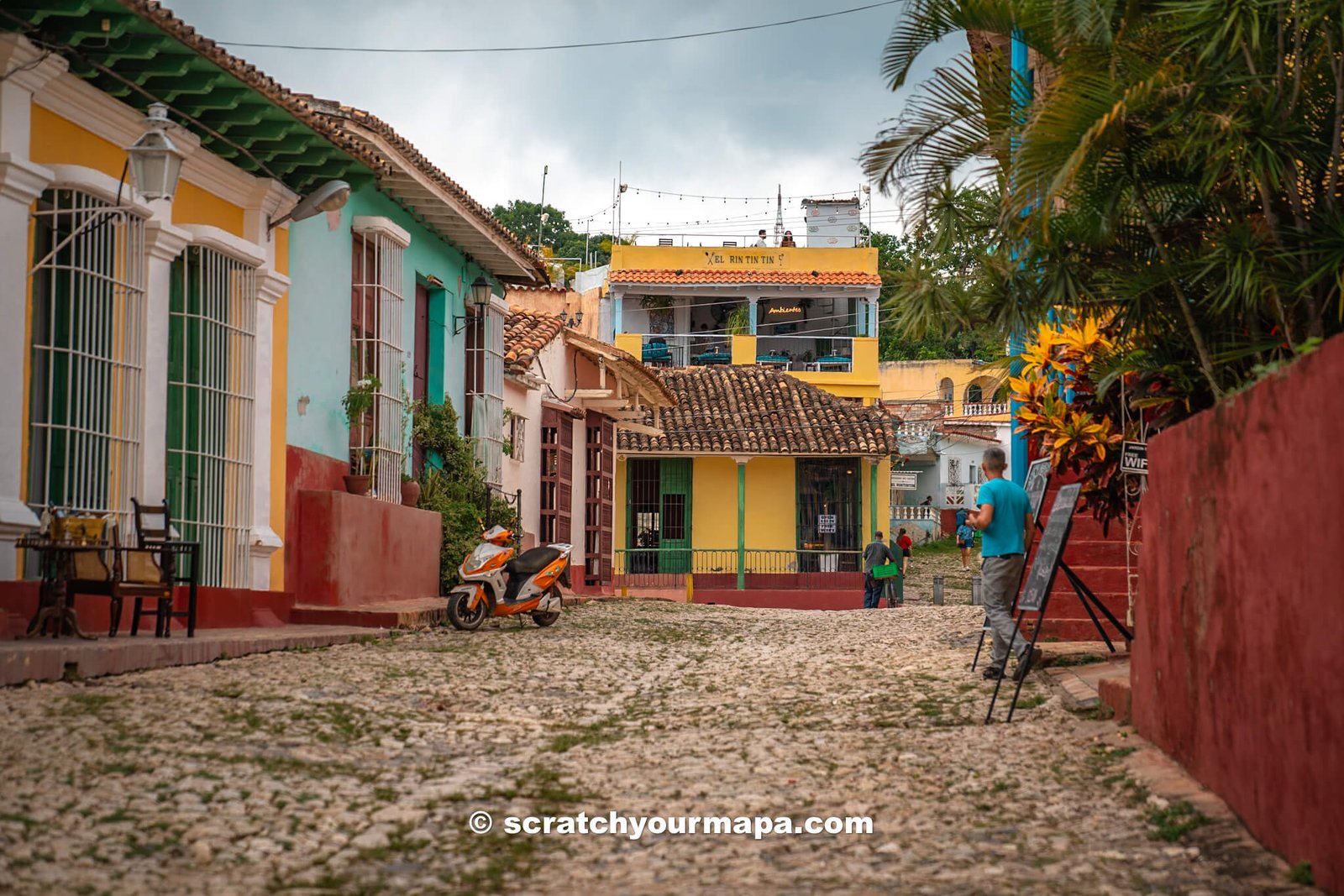
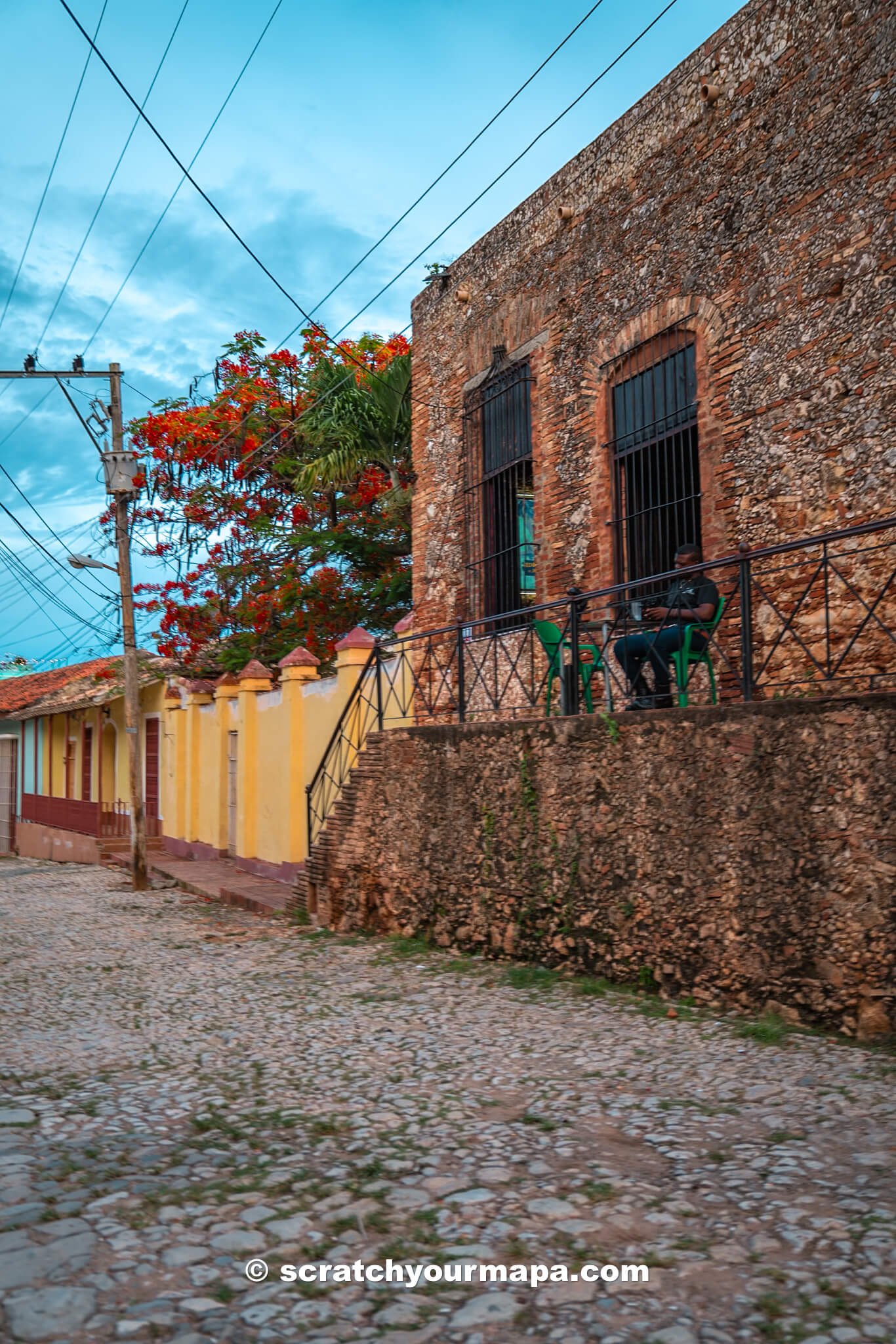

Travel Planning Tools
Here are some useful tools that you can use for planning your upcoming trip!
So, are you ready to plan a financially-successful trip? We hope our currency guide of Cuba has helped answer any questions you may have had about money in Cuba for travelers. Still have questions? Feel free to drop them in the comments below!
Want to learn more about traveling around the island of Cuba? We have a ton of other Cuba Travel Guides for you, as well as new guides coming each week! Make sure to subscribe to our newsletter so that you can stay up to date with our most recent content, as well as for special discounts on our shop.
Looking to travel to Cuba but still need help making your itinerary or booking your flights and hotels? Well, we're here to help! Take a look at some of the travel planning packages we have, or email us today to learn more!
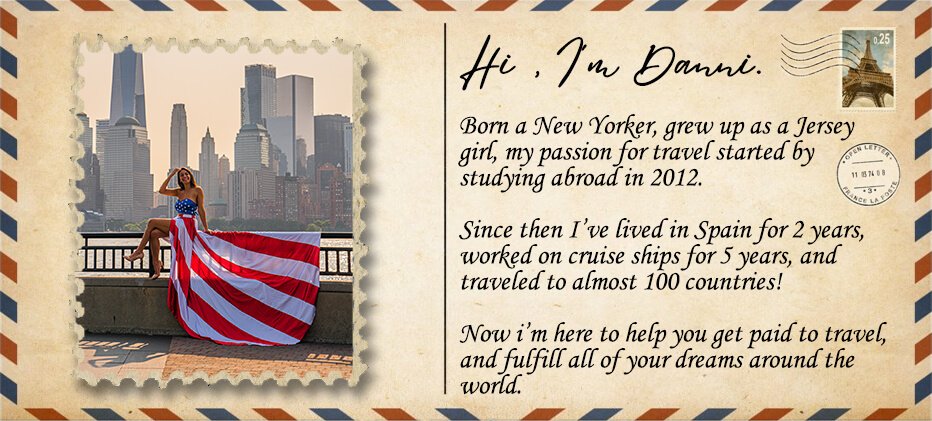
Here are some other articles you'll love:
Like this article? Please share it with your family and friends, so that we can continue to keep creating free travel guides for you! It takes just a second, and would mean the world to us. Thanks for being here!










